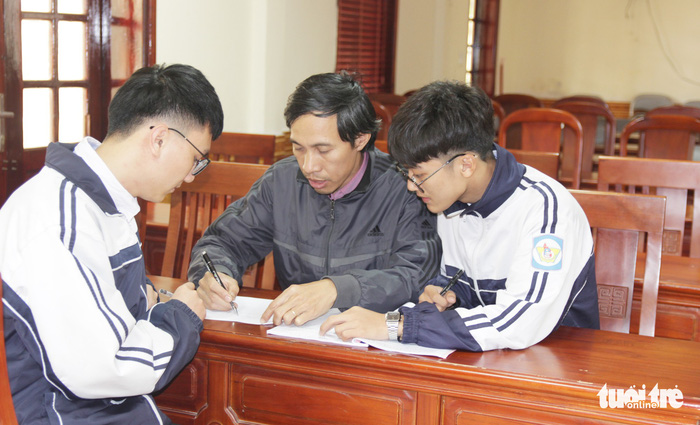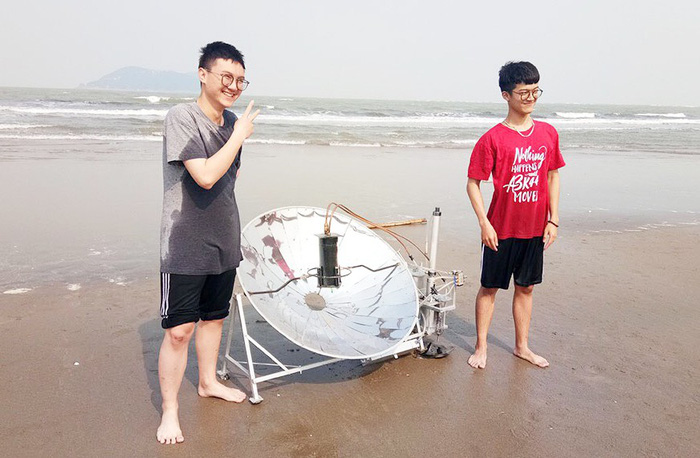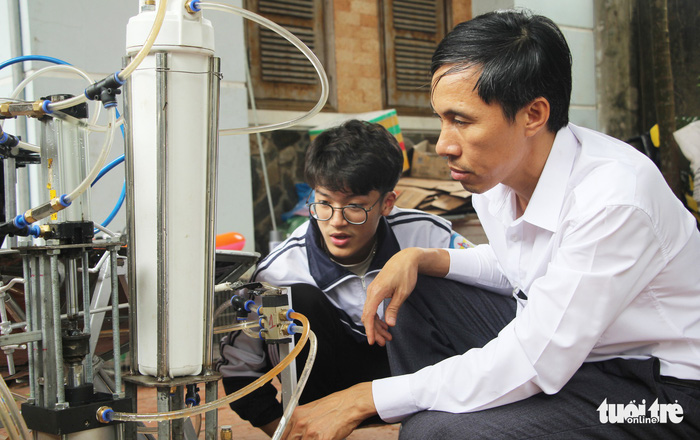A high school student in the north-central province of Nghe An may not be able to attend an international science competition in the United States, though selected by the Vietnamese education ministry, after having his visa application rejected twice.
Mai Nhat Anh, a 12th-grade student at Phan Boi Chau High School, was chosen by the Ministry of Education and Training to participate in the 2018 Intel International Science and Engineering Fair (Intel ISEF) in Pennsylvania, U.S. from May 13 to 19.
Anh and his classmate, Phung Van Long, were supposed to attend the event together to present their project which won first prize in a national contest in late March.
Their invention is among Vietnam’s eight entries to the competition.
So far, however, only Long has been granted approval for a visa while Anh’s application has been rejected twice, on April 16 and May 2, by the U.S. Embassy in Vietnam.
“The interviews lasted only about two minutes. I answered all the questions very clearly. It was quite shocking that my application got rejected,” Anh recalled.
According to Mai Van Quyen, Anh and Long’s teacher, the two students have been making careful preparations for their participation in the Intel ISEF.
The education ministry has already signed up the project and the two young inventors for the event.
 |
| Mai Nhat Anh (R) and Phung Van Long (L) discuss their project with their teacher, Mai Van Quyen. Photo: Tuoi Tre |
If only one of them makes it to the competition, the project could be disqualified, Quyen elaborated.
Nguyen Xuan Thanh, an official from the Ministry of Education and Training, stated that the agency had sent a document to the U.S. Embassy to ask for their support in the visa issuance for the Vietnamese participants in the global contest.
Regarding Anh’s case, the ministry will help him reapply for the visa so that he might still have the opportunity to participate in the event, Thanh stated.
Turning salt water into fresh water
Anh and Long invented a machine that can convert seawater into fresh water via distillation. It took them about seven months to complete the project.
The machine weighs about 70 kilograms and is able to produce a considerable amount of fresh water.
It can be used on long-haul fishing boats or at houses in coastal localities.
“In good weather conditions, the device can run entirely on solar power and is able to supply seven liters of fresh water a day. It works best in hot and sunny weather,” Anh explained.
“Seawater is an unlimited resource, while solar power is clean energy, thus our machine is completely eco-friendly,” Long said.
 |
| Anh (R) and Long test their machine at a local beach. Photo: Mai Nhat Anh |
Anh and Long expect that their machine could be valued at VND10 million (US$440) if put into mass production.
The Intel ISEF, a program sponsored by the Society for Science & the Public, is the world’s largest pre-college science competition.
Each year, approximately 1,800 high school students from more than 75 countries, regions, and territories are awarded the opportunity to showcase their independent research and compete for on average $4 million in prizes.
This is not the first time that a Vietnamese student has his visa application rejected despite being selected by the education ministry to attend the Intel ISEF.
In 2017, Pham Huy, an eleventh-grader in the central province of Quang Tri, was also rejected twice by the U.S. Embassy.
After an article about Huy’s case was published in Tuoi Tre (Youth) newspaper, the boy received a phone call from the U.S. Embassy offering him a third interview to reconsider his visa application.
Huy was granted the document just in time for his flight booked for the same day.
Like us on Facebook or follow us on Twitter to get the latest news about Vietnam!



















































